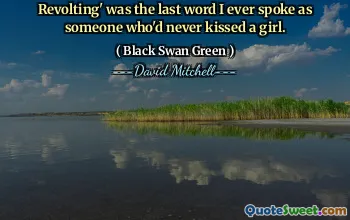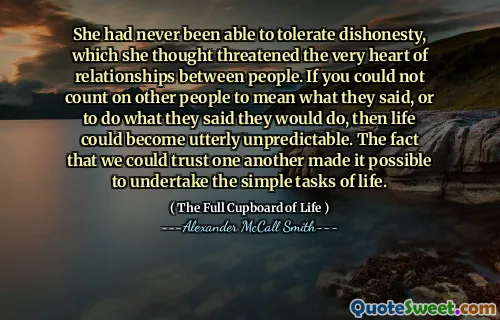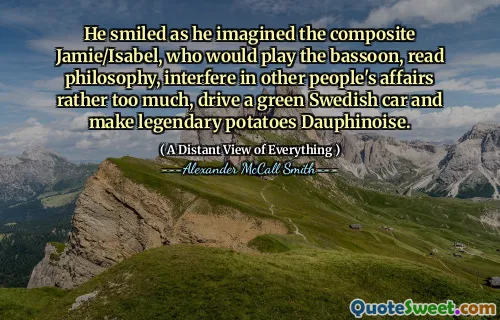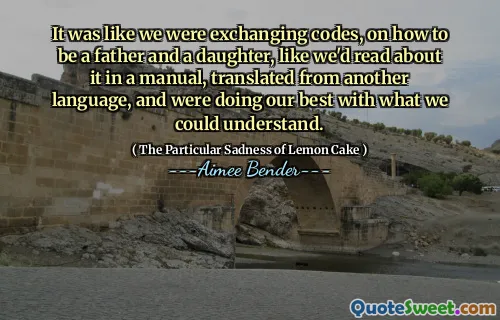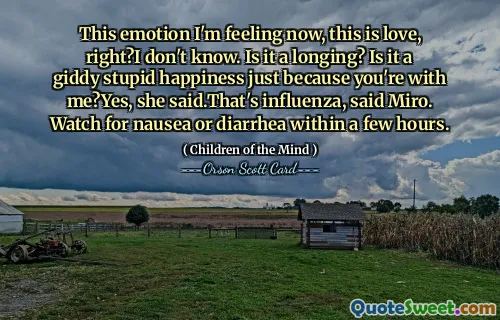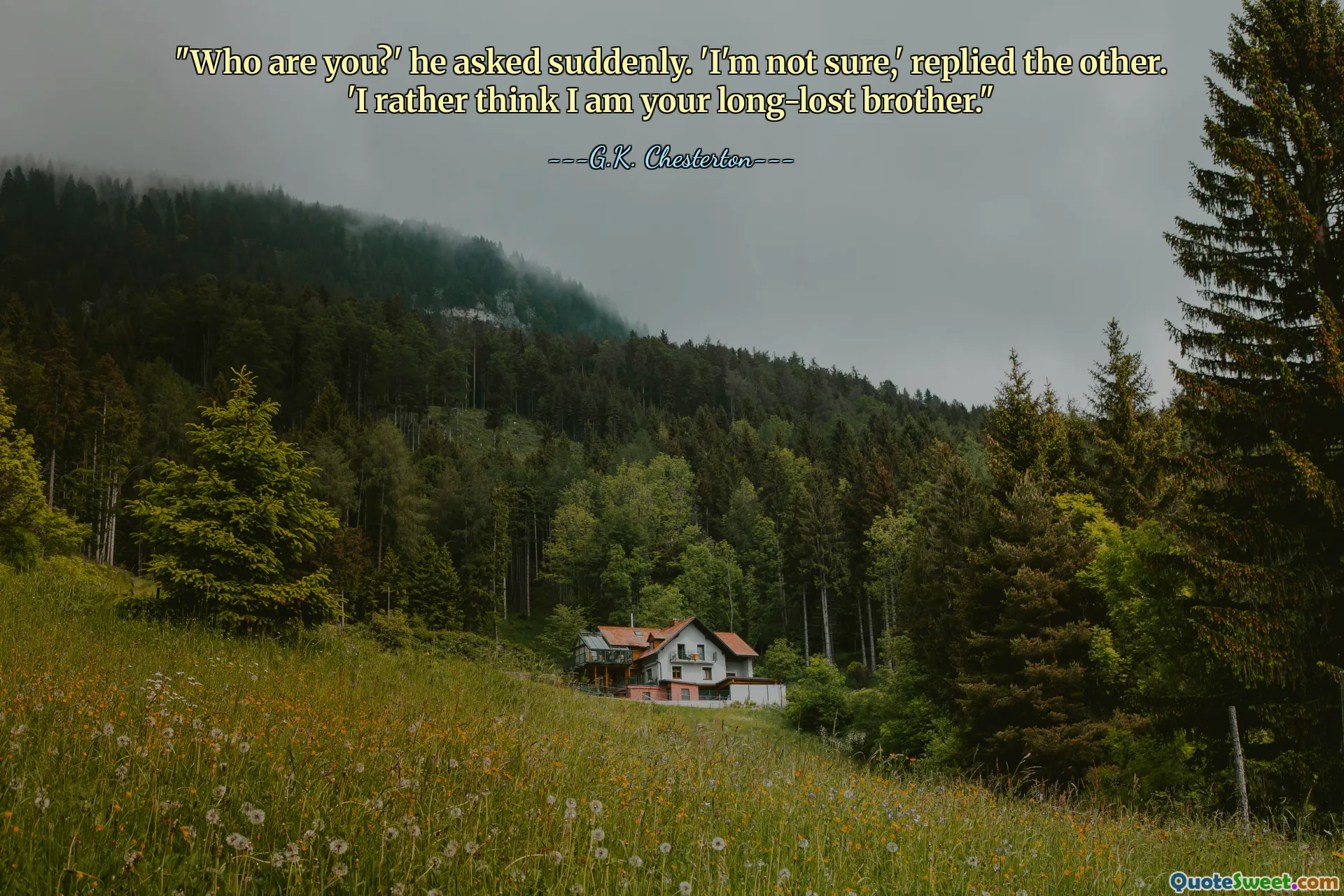
"Who are you?' he asked suddenly. 'I'm not sure,' replied the other. 'I rather think I am your long-lost brother."
This quote vividly captures the profound and sometimes bewildering quest for identity and connection that many individuals experience. The sudden question "Who are you?" epitomizes a moment of curiosity and perhaps urgency to understand the other—an invitation to reveal one's essence or truth. The response, "I'm not sure," speaks to the inherent uncertainty and fluidity of self-perception. It's a reminder that self-identity is rarely fixed and can be an ongoing journey rather than a static state.
Furthermore, the intriguing possibility that the speaker might be "your long-lost brother" evokes themes of kinship, destiny, and rediscovered bonds. This phrase suggests connections that transcend immediate understanding, emphasizing the mystery embedded in human relationships. It hints at the idea that sometimes the bonds that define us are not overt or obvious but lie dormant, waiting to be acknowledged or discovered.
On a deeper level, this exchange reflects the human longing for belonging and recognition. Recognizing someone as a "long-lost brother" symbolizes acceptance and reunion, reinforcing hope that even amidst confusion about who we are, there might be meaningful connections that root us, giving us identity and belonging. The quote’s simplicity belies its philosophical depth, touching on existential questions about identity, memory, and relationships. Overall, it encourages reflection on how beginnings—surprising questions and tentative answers—can lead to the unveiling of profound human connections.






